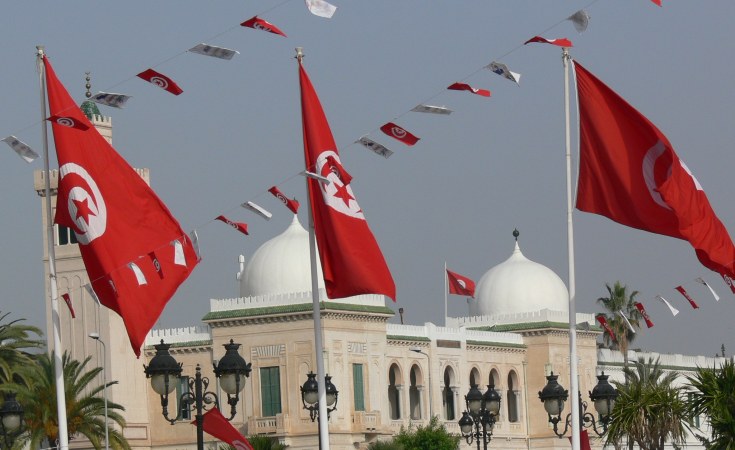Tunisians are voting Saturday in the first general elections after a constitutional referendum in July gave President Kais Saied sweeping powers. Political parties have boycotted the vote and there's little enthusiasm among the population since the election's outcome is unlikely to improve the country's economic situation.
Close to nine million people are eligible to vote in Saturday's parliamentary elections.
They will chose from a total of 1,058 candidates - only 120 of them women - to fill the 161 seats in parliament.
Polling got off to a slow start in central Tunis, with few queues outside polling stations, though RFI's Lilia Blaise reported that voters tend to vote late in the day. Polls close at 18:00 local time.
Among the early birds were 31-year old engineer Manel and her mother.
"I went to vote because I think it's important regardless of the context and the difficulties we're facing in politics," she told RFI. "If you don't vote it's like leaving others to decide in your place."
Karim Saadi, a 28-year old newspaper vendor, said he wouldn't vote. "I simply no longer believe in it, I no longer trust the electoral process."
The previous legislature had far-reaching powers in the mixed presidential-parliamentary system enshrined in Tunisia's post-revolution constitution.
But candidates in Saturday's poll are standing as individuals under a system that neuters political parties.
Seven constituencies have no candidate at all and around ten have only one, meaning there will be no contest.
Around half the candidates are either teachers or mid-level civil servants, according to the non-governmental Tunisian Observatory for Democratic Transition.
In contrast with the previous parliament, where gender equality was mandatory, women make up less than 15 percent.
"When political parties were running, we knew what we were dealing with," said Tarek El Fridi, a 62-year old civil servant, staring at a poster showing a sea of largely unfamiliar faces.
"With these candidates, who don't represent parties, only themselves, I'm a bit lost."
Boycott
Almost all of Tunisia's political parties, including the influential Islamist Ennahdha Party, have said they will boycott the vote.
They describe this election as a "mascarade", part of a "coup" against the only democracy to have emerged from the 2011 wave of uprisings across the region.
The powerful UGTT trade union federation has called the poll meaningless.
Few foreign observers are present, though Russia has sent a delegation.
International journalists have been banned from reporting on individual candidates.
The election follows three weeks of scarcely noticeable campaigning, with few posters in the streets and no serious debate.
Last year, Saied suspended parliament and sent military vehicles to surround it in a power grab, more than a decade after a popular revolution unseated dictator Zine El Abidine Ben Ali.
Saied, a former law professor, has pushed through a new constitution giving the presidency almost unrestrained powers and laying the ground for a 161-seat rubber-stamp legislature.
On Saturday, he told voters that the country was "breaking with those who destroyed the country".
"Those who are elected today should remember that they are being watched by their voters, and that if they're not up to the job their mandate will be taken away," he said in front of a polling station in Ennasr, a comfortable district of Tunis.
I Watch, a non-governmental watchdog organisation formed after the 2011 revolution, said the new parliament had been "emptied of all powers".
Disappointed youth
Saied's moves against an unpopular political system were initially supported by many Tunisians, especially young people.
But almost a year and half on, the country's economic woes have gone from bad to worse.
Inflation is running at 10 percent and there are frequent shortages of milk, sugar and petrol.
Thirty-eight percent of 15 to 24-year-olds are unemployed, fuelling a growing wave of emigration.
More than 16,000 Tunisians fled to Italy this year, up from 14,342 last year, some risking the dangerous journey aboard smugglers' boats.
Sociologist Mohamed Jouili told RFI that President Saied had not managed to "speak to young people".
A study by non-profit Lam Echaml showed that while 44 percent of young people intended to vote on Saturday, 38 percent were undecided.


